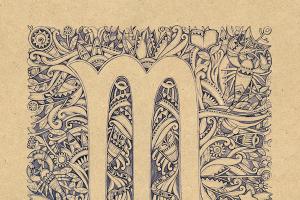Is this the business of everyone or the lot of the chosen few? Can society exist without power?
IT IS USEFUL TO REPEAT QUESTIONS:
Activities, types of activities.
Politics is a special sphere of human activity. While studying history, you probably noticed that when they talk about politics, they always mean the connection of this concept with power, the state, and the management of the affairs of society. In other words, the sphere of politics also includes political organizations (government, parliament, parties, etc.); and the tasks that different social groups seek to solve using power; and a political process that goes through conflict and cooperation and includes measures to maintain stability in society and reform.
POLITICS AS ACTIVITY
Science offers various definitions of policy. Here are two of them:
1. Politics is the activity of government bodies, political parties, social movements in the sphere of relations between large social groups, primarily classes, nations and states, aimed at integrating their efforts with the aim of strengthening political power or gaining it by specific methods.
2. Politics is a special type of activity associated with the participation of social groups, parties, movements, individuals in the affairs of society and the state, their leadership or influence on this leadership.
Think about these definitions and compare them. In them you can see, firstly, the active nature of politics; secondly, the special role of large social groups in this activity; thirdly, the connection of their activities with the conquest, retention and use of state power.
Political activity includes public administration, that is, such influence on society, on certain aspects of social development, in which the demands of the authorities are supported by the force of the law and special government institutions, including security forces (police, army, state security agencies). It also covers the influence of political parties on the course of social processes and government decision-making. Parties and other political associations, on the one hand, associated with various social groups, rely on their support, and on the other, express the interests and aspirations of these groups, exert pressure on the government or participate in the development of government decisions.
Political activity is also manifested in various forms of participation of the broad masses in the political life of society. In the course of political activity, its participants enter into specific relationships with each other. This can be either cooperation, alliance, mutual support, or confrontation, conflict, struggle.
As a result of the interaction of participants in political life, the implementation of political decisions, a political process develops, that is, a chain of political events and conditions that change over time. One political system is replaced by another, instead of a government that resigned, a new one comes, reforms and counter-reforms are carried out, popular movements come into force and weaken, some political parties leave the political arena and others are born, the state of political stability changes with increasing tension in society , new political situations arise, each of which is unique and unique. All these phenomena are not limited only to the political sphere itself; they affect the economy, social life, culture, and the entire society.
SUBJECTS AND OBJECTS OF POLICY
You remember that in any activity there is a difference between subject and object.
Subjects of politics are, firstly, large social communities, which include social groups and strata, classes, nations, etc. For example, on the eve of the revolution of the 18th century. in France, the “third estate” was actively involved in political activity (remember what social groups it included). And in the middle of the 20th century. The political life of France was significantly influenced by the student struggle.
Secondly, the subjects of political activity are various political organizations and associations (states, parties, mass movements). Let us remember: the history course examines the politics of different countries. The state is a political organization that manages the joint activities and relationships of people in order to preserve the integrity of society and maintain order; ensures subordination to the ruling class in a class society; is the source of legal norms regulating the life of society. The state exercises power and carries out the policies of the ruling social forces. its characteristic features: the presence of state bodies (legislative body, government and other parts of the administrative apparatus, court, etc.) that implement the functions of power; the presence of layers of people professionally involved in management; the territory over which the power of this state extends; sovereignty, that is, the exclusive right to officially represent the entire society at home and abroad, make laws and administer justice.
You are also familiar with the history of political parties (Democrats and Republicans in the USA; Conservatives, Liberals and Labor in England). Each of these parties developed its own political course, sought to expand the number of its supporters, and defended its political demands in parliaments or other representative bodies. Organizations whose emergence was caused by other, non-political needs can also become subjects of politics.
(for example, church, trade unions), but under certain conditions they become involved in political activities.
Thirdly, the subjects of political activity are the political elites. When the word “elite” is uttered, in everyday speech they mean the best representatives of society or part of it. However, the concept of “political elite” also has another meaning. Let's imagine a situation when some mass political party comes to power. Does this mean that tens of thousands of members of this party will directly make government decisions and govern the country? It is obvious that only a relatively small group of people actually develops the political course and gives orders. Likewise, when it is said that the industrial bourgeoisie has come to power, this does not mean that all industrialists will actually exercise power. In fact, only a small part of the representatives of this social group will be at the helm of government.
So, the ruling political elite is a relatively small group of people who concentrate power in their hands, exercise political leadership of society, determine the goals and paths of political development, and make political decisions. It includes senior executive officials, deputies from parties that won the elections, and party leaders. Several hundred such political figures are united by approximately the same position in the system of power, similar functions, and common political views.
Fourthly, the subjects of politics are individuals. At first glance, it seems that we are talking only about outstanding personalities and political leaders. In fact, every person is directly or indirectly connected with politics, even those who consider themselves “outside politics.” After all, such a person is forced to comply with the political decisions of the authorities, and if it ignores them, then he comes into conflict with the authorities, again into certain political relations.
The German scientist Max Weber (1864-1920) considered three degrees of involvement in political activity. Everyone is an “occasional” politician when we cast our ballot or make a similar expression of will, for example, we approve or protest at a “political” meeting, we make a “political” speech, and the like. “Part-time” politicians these days are, for example, all those proxies and boards of party-political unions who, as a general rule, engage in this activity only when necessary, and it does not become for them the primary matter of life, either materially or ideal plan. This also includes some members of parliament who work “for politics” only during parliamentary sessions.
Professional politicians are those who live “for politics” or “at the expense of politics” and “by politics”. In other words, these are professional politicians for whom politics is the main occupation of their lives and the main condition for their material well-being.
What determines the degree and limits of political activity of one or another member of society? To a greater extent they depend on objective conditions. First of all, from the political and legal systems existing in society, which determine acceptable norms of political activity; on the presence or absence of social barriers and restrictions on individual activity (for example, group privileges, various qualifications - property, education, residence, etc.). Objective conditions should also include the social position of the individual and the associated chances of success in politics. Finally, an individual’s activity can grow in conflicting political situations that affect his interests.
Along with objective conditions, a person’s political activity is influenced by his personal qualities. These include the level of mastery of those responsibilities dictated by the social status of the individual; and one’s own efforts and abilities to conduct political activities; and the political culture of the individual, his political orientations, value system; and motivation of activity, capabilities and ambitions of the individual. So, the subjects of politics are individuals, social groups, political organizations, and political elites.
Let us turn to the question of policy objects. You probably know that there is a difference between internal and external policies. What is the object of each of them? It is not difficult to understand that internal politics has as its object society in one’s own country, and external politics has as its object the world community, international relations, that is, relations with other countries. Depending on the objects to which domestic policy is directed, a distinction is made between economic, social, national, demographic, youth, environmental, cultural, and personnel policies. In turn, economic policy is divided into scientific and technical, structural, agricultural, investment, financial, foreign economic policy (you yourself will probably be able to name the objects of each of these policy areas).
Having examined the objects of political activity, we can conclude that politics affects the entire society, all aspects of its life. This leads to the conclusion about the enormous importance of political activity in the development of society.
Or are all means good?
Political activity, like any other, presupposes the determination of its goals. They are divided into long-term (they are called strategic) and current goals. Goals can be relevant, priority and irrelevant, real and unrealistic. How relevant, on the one hand, and realistic, on the other, this or that goal can be answered only through a complete and accurate analysis of the main trends in social development, urgent social needs, the alignment of political forces, and the interests of various social groups.
Of particular importance is the question of the availability of means by which the intended goals can be achieved. We have already addressed the issue of the relationship between goals and means. Regarding political activity, this issue was considered by the outstanding thinker of the Renaissance Nicolo Machiavelli (1469-1527). “It is superfluous to say,” he wrote, “how commendable loyalty to one’s word, straightforwardness and unwavering honesty are in the state. However, we know from experience that in our time great things were achieved only by those who did not try to keep their word and knew who needed , fool around the finger, such owners as a result prospered more than those who valued honesty... It should be understood that the owner, especially a new one, cannot do everything for which people consider wonderful, because for the sake of preserving the state he is often forced go against his word, against mercy, kindness and piety. Therefore, in his soul he must always be ready to change direction if events take a different turn or “the wind of fortune blows” in the other direction, that is, as was said, according to the opportunity not to move away from good, but, if necessary, not to shy away from evil."
So, a politician (“possessor”), as N. Machiavelli believed, “for the sake of preserving the state” can break this word and generally “not shy away from evil.” And in our time there are political figures who, while painting a bright image of the proclaimed goals, justify the use of not the best means to achieve them. Extremist (i.e., committed to extreme views and measures) organizations are especially unscrupulous. Fighting for their political goals, they consider it possible to hijack a plane with passengers who have nothing to do with their problems; arrange an explosion somewhere in a crowded place, killing people who happened to be there; brothers and kill hostages.
The formula “the end justifies the means” is opposed by another view of the relationship between politics and morality: to subordinate politics to morality. However, many scientists note that a politician often has to choose: either to prevent danger, carry out tough measures that do not fully correspond to “absolute morality,” or by his inaction create problems for society. The moral line that cannot be crossed is today reflected in human rights documents and international humanitarian law.
The political life of each society is characterized by different levels of citizen participation in politics. There is a struggle between people for their interests. In Russian society there are supporters of reforms and modernization, others are opponents of the renewal of the country and the entire system of socio-political relations. Various types of political activities of subjects and their relationships form political processes.
1. The concept of “political process”.
The political process is a special type of socio-historical processes. Its specific feature is the achievement by political subjects of common goals with the help of power and the corresponding norms for its implementation. The mechanism of the political process is the interaction of public institutions and social groups endowed with the appropriate consciousness and psychology.
A process is any sequence of events occurring one after another and often alternately interdependent, leading to a specific result.
Political process is a consistent change in the state of socio-political reality, primarily the political system of society, occurring as a result of the combined activities of socio-political subjects (political forces) aimed at gaining, retaining and using political power, at ensuring the constitution, functioning or change of political systems, to reproduce or change the existing set of social relations.
The driving force of the political process contradictions arise during the interaction of socio-political forces - participants in the political process.. The essence of the political process lies in the production and reproduction, on the one hand, of various components of the political system, political man, structures, institutions and means of political power and political participation, political culture and norms, and on the other hand, the production through the political system of a certain social order and social change.
The content of the political process includes: a) socio-political conditions for the emergence and functioning of the political process; b) subjects of political actions and the means of their influence on the object, as well as objects of influence; c) political interests, motives and goals of behavior in political interaction; d) interaction of subjects in the form of struggle and cooperation. In terms of its composition, the political process can be represented by a set of processes: reforms, revolution, uprising, political crisis, direct political action, conflicts and cooperation, modernization, election campaign. The political process is carried out through the struggle of people for their interests. It is the latter who play the role of generator of the political process.
When analyzing the political process, it is important to clarify the ways of its implementation.
In political science, there are two ways to implement the political process: conservative-routine and radical-reformist. A characteristic feature of the first method is that this process is aimed at preserving existing political institutions (state, parties, public organizations, administrative apparatus, judicial system, legislative power) and forms of government (political regime). It is distinguished by an abundance of regulations that streamline the behavior of people in various spheres of their life, the delegation of a significant amount of power to the top, and the lack of pluralism of the political system and opposition. As a result, the political system becomes less receptive to innovation.
The radical reform political process brings with it the satisfaction of new socio-political needs. It features flexible forms of organization. It leads to a qualitative renewal of previous tasks, a change in the means and methods of political activity. The attitude towards novelty in this case is always positive and opposition to innovation is reasonable.
In real life, these two ways of carrying out the political process are intertwined and interact with each other; in different periods, either radical reformist or conservative routine can come to the fore.
The political system of society is in constant motion, that is, one of its states inevitably gives way to another, it seems to pass through individual political situations, which, in turn, are fragments of the political process, its links. Political events unfold on the verge of two political situations (the congress of a political party, elections, the events of October 1993). The political process can be represented as a transition from one political event to another (from party congress to party congress, from election to election, from one political campaign to another, from one political decision to another). Reforms and revolution, uprising, riot, mutiny, putsch, political crisis, direct action in politics) rally, demonstration, strike), conflict and cooperation - all these are also political events. The political process is real political activity.
The political process is an indicator of social change. To the extent that the masses are the bearers of social changes, they implement them in the form of a political process. But the latter implies active participation in it. Man is not an object, but a subject of history. It directly influences politics. In its uncontrollable rush forward, a mass movement can slip past the understanding that retreating back is often a good thing. The sad experience of total collectivization confirms this. Now we have to return to farming, which received some development in Russia at the beginning of the 20th century.
Conscious planned actions of group subjects prevail in the political process. The core of the political process is the totality of decisions made. A general type of political decision is the development of a policy, usually called a strategy. Decisions can be made both by individual political leaders and by broad groups of people, up to the entire society in the case of a popular vote (referendum).
The necessary stage (phase) of making a political decision is analysis and formulation of the problem to be solved. The reliability of the information is comprehensively assessed, and the strengths and weaknesses of the proposed projects are identified.
Next step (phase) – choosing one of the possible paths. For this purpose, the following are used: a) voting method (democratic majority); b) the method of consensus (multilateral compromise).
The final stage (phase) is implementation of a political decision. A political and legal mechanism must operate here - legislative norms and the strict responsibility of everyone for the fulfillment of their duties.
The types of political action depend on the type of social transformation. Has a maximum range of action the first type of political action: revolution, rebellion, uprising, counter-revolution, peasant war. This type of political action brings about dramatic change.
The second type of political action consists of reforms. They lead to social changes, but do not destroy the foundations of power of the ruling class. The third type of political action includes political coups: coup d'etat, putsch, palace coup, military conspiracy. They lead to changes in the sphere of power, primarily to personal ones, carried out by direct physical violence.
Examples of specific political actions are rallies, demonstrations, strikes, meetings, pickets, etc. Special types of political actions are elections, referendums, as well as official visits of state and party delegations to other countries, and diplomatic negotiations.
Choose the correct statements about political participation and write down the numbers under which they are indicated.
1) Active political participation of citizens is a condition for the development of civil society and the rule of law.
2) One of the forms of political participation is elections to state authorities and local self-government.
3) The active inclusion of citizens in the political process requires a certain activity of the state, political parties, and socio-political movements.
4) A referendum, unlike elections, involves a secret ballot procedure.
5) One of the forms of political participation of citizens is obtaining a legal education.
Explanation.
Political participation is a type of political activity. Political participation is the activity of citizens with the aim of influencing political decisions and their implementation.
This definition requires some clarification. Firstly, when speaking about political participation, we mean the political activity of ordinary (ordinary) citizens, and not of persons who have state power and (or) are engaged in the performance of their official management functions. Political participation does not include the professional activities of people who are members of representative, executive, judicial, and security forces; Political participation of professional politicians and officials occurs only in cases where they act as ordinary citizens, for example, participate in the voting procedure. Secondly, political participation is a voluntary activity of citizens; it is not obligatory for them, much less forced. For this reason, many forms of activity in Soviet society were not considered political participation by Western Sovietologists (specialists in the USSR and other socialist countries). Thirdly, the political participation of citizens is not “participation for money”: if a person campaigns for a party or participates in its events only because they are paid for it, then this activity is not political participation. An alternative to political participation is absenteeism - avoidance of participation in political life due to lack of interest in politics.
The forms of political participation are diverse. The most popular are: mass demonstrations (rallies, demonstrations, strikes, pickets), voting in elections and referendums, participation in the activities of political parties and pressure groups, expressing one’s opinion on certain political events or decisions through the media, letters and appeals to authorities state power, orders to deputies, contacts with civil servants, control over the activities of state and municipal authorities, etc. The most common form of political participation is participation in elections. In some countries, the share of people participating in national elections reaches 90% (Australia); in most developed democracies it usually ranges from 50 to 80%. Other types of participation cover more than 25% of citizens only in very few cases.
Due to the variety of forms of political participation, it can be classified on various grounds. Political participation can be: legal (participation permitted by law) and illegal (forms of political activity prohibited by law, such as terrorism or protests not permitted by the authorities); individual and collective; permanent (typical of political activists) and episodic (usually limited to participation in elections); traditional (aimed at preserving the political system and maintaining stability) and innovative (oriented at changes and reforms); at the local, regional or higher levels of the political system, etc. Forms of participation differ in their focus (to achieve public goals or realize private interests), the amount of effort and resources required from participants, the level of conflict with the authorities and the degree of influence on their pressure, the volume of necessary cooperation, etc. For example, protest activity, as a rule, is very conflictual, can put strong pressure on the authorities and requires a certain cooperation on the part of the participants; at the same time, contacts with officials are usually non-conflicting, exert little pressure on the authorities and do not require cooperation.
1) Active political participation of citizens is a condition for the development of civil society and the rule of law - yes, that’s right.
2) One of the forms of political participation is elections to state and local government bodies - yes, that’s right.
3) The active inclusion of citizens in the political process requires a certain activity of the state, political parties, socio-political movements - yes, that’s right.
4) A referendum, unlike elections, involves a secret voting procedure - no, that’s incorrect.
5) One of the forms of political participation of citizens is obtaining a legal education - no, incorrect.
Subjects of politics are participants in political life. The subject of politics is understood as a participant in the political process able to act freely and independently. He has his own needs and interests, which he is aware of. This allows political subjects to realistically assess what is happening in society and put forward the goals of their actions, determine and select the means to achieve them. Ordinary consciousness usually associates politics and political activity with the state and political leaders. Participating in the political process:
- social communities of people - classes, nations, professional, corporate, religious communities;
- social groups: political elites, bureaucracy;
- individuals, citizens;
- public organizations, movements and political parties created by them.
They show varying levels of activity and influence on the political process. For example, such specific social groups as elites and bureaucracies often develop and make decisions on the most important issues in the political life of society and the state, concentrating enormous power in their hands. The power and influence of these entities comes from the fact that they are stable social groups that have their own interests that oppose the interests of other social groups.
Political elite
Among the political subjects actively participating in the political process, the political elite stands out. Political elite is a relatively small and close-knit group of people who concentrate power in their hands by monopolizing the right to make decisions, give orders, and determine goals and strategies for political development.
This category of political science characterizes the bearers of the most pronounced political and managerial qualities and functions. The ideas of political elitism arose in ancient times. The disintegration of the clan system, the division of labor, especially the separation of mental labor from physical labor, led to the emergence in society of views that justified the division of society into higher and lower, noble and rabble, aristocrats and common people. These thoughts are most consistently substantiated in the works of Confucius, Plato, N. Machiavelli, T. Carlyle, F. Nietzsche.
The term “elite” itself appears in political science in the 20th century in the works of J. Sorel (1847-1922) and V. Pareto (1848-1923) and to this day is one of the most researched and controversial topics in science. How to explain the interest of political science and, in particular, its Russian representatives in the elite? By materializing power, elites predetermine the adoption of the most important political and managerial decisions and have a real influence on the fate of peoples and states. Representing the people, this social group must be more or less controlled by the masses and relatively open to citizens with the necessary qualifications and political activity. She submits to such demands in a democratic society.
The existence of political elites is due to the following main reasons:
- mental and social inequality of people, their unequal opportunities and abilities, desire to participate in politics;
- the law of division of labor, since effective management requires professional knowledge;
- the social significance of managerial work and its corresponding stimulation;
- wide opportunities for using management activities to obtain social privileges (since political and managerial work is directly related to the distribution of values);
- the impossibility of exercising comprehensive control over political leaders;
- political passivity of the broad masses of the population, whose vital interests usually lie outside politics.
These factors determine the elitism of society and the constant interest in the study of political elites in political science.
The role of Russian political elites
The relevance of studying political elites in Russia is explained by the social conditions of the country, the importance of elites as carriers of the mechanism for exercising power in the modern political process, and the success of the development of social sciences in the country in recent years. In domestic political science for a long time the idea of denying the need for elites prevailed and their positive role. “Elite” did not fit into the theory of a classless society, since it was synonymous with inequality and contradicted democracy. Contrary to the actual existence of this phenomenon in the life of Soviet society, it was either kept silent about it or biased information was given.
The modernization of Russian society, which began in the 90s, led to a radical change in the socio-economic and political spheres. The emerging political market, democratic elections, as well as the significant development of the system of representation have led to the need to expand the composition of the political elite. Recruiting the elite, especially in the first period of political modernization, became largely a matter for the voter. The active participation of citizens in political life has changed the nature of interaction between society and political power. Individuals who most actively participated in the implementation of social interests and the achievement of political goals formed the basis for replenishing the political elite.
 Today in Russia there is a change of elites. The need to form a qualified and productive elite determines and makes interest in this problem relevant. In addition, the weak political activity of citizens at the end of the last millennium and the low performance of the Russian political elite influence the formation of the image of this group as a whole, neutralize (reduce) the social role of the elite, and determine the typical features of its individual representatives - political leaders. The bureaucracy acts as an intermediary between the elite and the rest of society. This social group forms the apparatus of political organizations, the core of state structures, and also directly implements the will of the elite and interacts with the population.
Today in Russia there is a change of elites. The need to form a qualified and productive elite determines and makes interest in this problem relevant. In addition, the weak political activity of citizens at the end of the last millennium and the low performance of the Russian political elite influence the formation of the image of this group as a whole, neutralize (reduce) the social role of the elite, and determine the typical features of its individual representatives - political leaders. The bureaucracy acts as an intermediary between the elite and the rest of society. This social group forms the apparatus of political organizations, the core of state structures, and also directly implements the will of the elite and interacts with the population.
Political status of the individual
Under political status of the individual understands the position of a person in the political system of society, the totality of his political rights and responsibilities, and opportunities to influence the political life of the country. Regardless of the degree of participation of a particular person in politics, his role in the political process, all citizens of democratic states have a number of political rights and freedoms that allow them to actively participate in political activities:
- the right to vote and be elected;
- freedom of speech, press, meetings and rallies, unions;
- the right to send personal and collective appeals (petitions) to authorities.
Each person also has the right to take part in the management of public affairs, both directly and through his representatives, and is potentially an active subject of the political process.
In societies with totalitarian and authoritarian regimes, the individual is actually, and sometimes formally, deprived of any political rights, being the object of state policy. To determine the political status of an individual, it is important not only the socio-political reality in which he is included, but also the political functions and roles that he performs in it. Let us present one of the classifications of political roles of an individual, which are understood as political functions, normatively approved patterns of political behavior. Depending on the degree of a person’s involvement in politics, several types of political roles can be distinguished:
- an ordinary member of society who has no influence on politics, is not interested in it and is almost exclusively the object of politics;
- a person who is a member of a public organization or movement, indirectly involved in political activity, if this follows from his role as an ordinary member of a political organization;
- a citizen who is a member of an elected body or is an active member of a political organization, purposefully and of his own free will included in the political life of society;
- a professional politician for whom political activity is not only the main occupation and source of existence, but also the meaning of life;
- political leader is a person capable of changing the course of political events and the direction of political processes.
One of the main characteristics of the political process is the activity of political subjects, i.e. political activity. It represents the conscious and purposeful actions of political subjects to manage the state and society, their direct or indirect participation in political life. The main motivation for political activity is the vital interests and needs of people, the most important of which are economic and material. It is here that the deepest motives for people's participation in politics are rooted. Needs become political interests and cause certain actions when people realize that the satisfaction of their needs depends on their influence on power or changes in the political system. In addition to interests and needs, the motivational component of political activity is also determined by the level of education of the subjects of action; the ability to analyze the current situation in which events occur; the system of values and norms existing in society; emotional and psychological predisposition of the participants in the events.
Political activity has a rather complex structure:
As subjects political activities may include: individual subjects(ordinary citizens or professional politicians); group subjects(communities, groups, collectives, elites); institutional actors(organizations and institutions performing representative and executive functions in the political system of society). Subjects of political activity enter into certain relations with each other - political relations. They are in the nature of competitive interaction, which is determined by the mutual desire of subjects to gain and use state power. Because of this, political relations are often characterized by tension and conflict. Main object political activity is the existing system of socio-political structure of society, i.e. politic system. Some political subjects are trying to preserve and strengthen it, others are trying to reorganize and thereby adapt. To realize their interests, others must undergo a radical transformation. The means and methods of political activity are very diverse. These include: rallies, demonstrations, elections, speeches, meetings, meetings, negotiations, uprisings, revolutions, wars, etc. The choice of methods and means of political activity depends on the characteristics of the political culture of society.
Political activity consists of a number of specific political actions, which are understood as certain actions, steps, actions, intentionally or spontaneously undertaken by individuals, social groups, and communities in order to obtain a certain political result. These actions could be:
positive(their goal is the constant improvement of the political system or its structural components, development in a progressive direction) or negative(they often cause the development of conflicts in society, crisis situations, ineffectiveness of public administration);
rational(differ in that subjects have a clear idea of goals and use all possible methods and means to achieve them) and irrational(they are characterized by the fact that subjects do not have clear ideas about goals);
inertial(aimed at preserving traditional political relations and mechanisms of state power, at reproducing accepted norms of behavior in society) and creative(introduce changes in politics, ensure improvement of the political system);
spontaneous(actions that are not governed by political institutions) and organized(distinguished by high consciousness and purposefulness of political subjects);
institutionalized(the procedure for carrying out such actions is regulated by laws, charters, regulations, instructions, etc.) and non-institutionalized(they are associated both with the solution of problems not provided for by the official protocol, instructions, established written tradition or charter, and with violation of established norms).
The variety of actions of subjects of the political process presupposes the existence of different types of political activity. Depending on the changes that cause political actions in the sphere of political-power relations, the following types of political activities are distinguished:
- political reform- this is a change, reorganization in the method of activity, in the composition of institutions, institutions, which does not destroy the foundations of the existing political structure; the gradual implementation of planned transformations of society, in which the emphasis is on bringing these transformations to completion. Reforms are carried out, as a rule, through legislation and from above in order to improve the ability of the political system to adapt to the conditions of its functioning that change during development. The implementation of political reforms testifies to the evolutionary and non-violent nature of the development of the political process, the ability of a certain political system to adapt to the diverse interests and demands of society, new economic, social, ethnic, religious and other factors. The most common types of political reforms are constitutional changes in the sphere of executive power, restructuring of the balance of forces in the party system or parliament, etc.;
- revolution- a radical, qualitative change in the development of the political and socio-economic structure of society; collective, violent and deliberate seizure of power by any social group. In addition, the term revolution can also be used in a figurative sense to designate powerful trends that contribute to a radical transformation, a revolution in the quality of any area of the life of societies (scientific and technological revolution, information revolution, etc.). The characteristic features of revolutions are: radical, all-encompassing changes in the foundations of social order; participation in them of a large number of mobilized people; accompanying the revolutionary process with violence. The results of revolutions can be very different: a violent change in the existing political regime; replacing a political elite incapable of governing with another, more effective one; cardinal changes in almost all spheres of society - social, economic, political; a radical break with the past; making changes to the moral foundations of society, raising a new person;
- counter-revolution- political activity carried out by groups removed from power as a result of revolutionary events. The goal of the counter-revolution is to overthrow the new elite and restore the old order. To finance counter-revolutionary activities, funds from emigrants, as well as from countries that are interested in eliminating the revolutionary regime, are often used. Counter-revolutionaries use armed violence, economic sabotage, and political propaganda as methods of fighting the new order. If the counter-revolution is successful, the stage of open restoration of the power of the former political forces begins.
- restoration- a process of political change aimed at reviving a political regime previously overthrown during a revolution or coup d'etat. Most restorations are reactionary in nature, much less often they contribute to the establishment of a more democratic regime (for example, the republican restoration carried out by Charles De Gaulle (1890-1970) in France in 1945-1947 contributed to significant reforms in the political and social spheres of French society);
- political modernization- this is a set of processes within which new types of political demands and organizations appear and develop, constant transformations occur in all the main components of the system: the economy, social relations, culture, education, etc. Political modernization has four main features: a high level of differentiation of political roles and institutions, a single centralized policy with specific goals and guidelines; expansion of the activities of central administrative and political organizations and their penetration into all spheres of public life; high political activity of citizens; weakening of traditional elites and the legitimacy of power, along with the growing responsibility of rulers to the governed, endowed with potential power, i.e. able to influence decision making and policy formulation;
- coup d'etat- a sudden unconstitutional seizure of power, an illegal change of the ruling elite as a whole (president, government, state government officials), which are not associated with any fundamental changes in the political regime or socio-economic relations in society. Coups d'etat, just like revolutions, are distinguished by the collective and violent nature of political activity, as well as the desire to ideologize the events that took place through propaganda. However, unlike a revolution, a coup d'etat is preceded by a conspiracy, and a well-organized one, within the state institutions themselves. The main goal of a coup d'etat is to destroy the legitimacy of the existing government and establish another political force at the head of the state, which will retain the acquired powers by force. Such political actions most often lead to the destruction of a stable form of government and the establishment of anarchy or dictatorship. An example of such a coup d'état is the coup in Chile in 1973, which brought dictator Augusto Pinochet Ugarte to power;
riot, insurrection, mutiny- these are various kinds of indignation of the masses against the actions of the authorities, most often they are of an armed nature.
The greatest danger in the modern world is terrorism(from Latin terror - fear, horror) - the purposeful activity of extremist organizations or individuals who use violent methods and means (threats, blackmail, kidnappings, murders, etc.) with the aim of intimidating governments and civilians. There are various forms of terrorism. Historically, the first form of terrorism was individual terrorism. Over time, it began to be supplemented or combined with collectively organized terror. In modern conditions, forms of terrorism are being modernized; Terrorist activities are becoming more sophisticated, diverse, and inhumane. Cases of aircraft hijackings, explosions of public buildings, hostage-taking, including the elderly, women, and children, and the use of sophisticated threats and torture are becoming more frequent. At the end of the 20th and beginning of the 21st centuries, ethnic and religious terror became widespread, and international terrorism intensified. After the events of September 11, 2001 in the United States, a number of UN member states began to coordinate their activities in the fight against international terrorism.

Political participation- these are any, mostly voluntary, actions of individuals or groups related to their direct or indirect participation in the development, adoption and implementation of political decisions; manifestation of citizens' involvement in political-power relations.
Political participation of citizens can manifest itself:
1) in the exercise of power or opposition to its exercise (for example, in activities in representative bodies or in civil disobedience campaigns);
2) in the activities of formal political organizations (political parties, public associations);
3) in the activities of informal organizations (popular fronts, etc.);
4) in elections and referendums;
5) in the form of direct action, i.e. participation of citizens in public demonstrations with the aim of influencing authorities (rallies, demonstrations, political conversations);
6) reading political periodicals and literature, listening and watching political programs with subsequent discussion;
7) in fulfilling political duties within government bodies, in assisting the public in the implementation of these functions (for example, in maintaining law and order).
The nature and degree of citizens’ involvement in politics and their political activity are determined by reasons or factors of participation that are significant to them. They are the ones who directly determine people’s activities and their political behavior.

The forms and types of political participation of citizens are quite diverse. Most often, modern political scientists distinguish between autonomous and mobilized political participation. Autonomous participation has a voluntary nature and goal-oriented motivation, supported by developed ideas about politics. With this type of participation, a person independently turns to political forms of protecting his interests and independently chooses the forms and channels of manifestation of his activity. In turn, mobilized participation is achieved through means of manipulation, coercion, violence, economic and other sanctions. A person is drawn into politics against his will, often becoming a hostage to the will of individual politicians or political forces. The mobilized type of political participation is most often characteristic of totalitarian regimes, which strive for the symbolic involvement of the masses in politics to simulate their public support.
In addition, there are active and passive, individual and collective (mass), legal (complies with the order established by laws) and illegal (violates laws, contradicts established orders), traditional (focused on maintaining political continuity and stability) and innovative (aimed at development, change ), constant (typical for professional politicians) and episodic (typical for ordinary citizens, for example, voting in elections), organized and unorganized political participation.
The so-called protest forms of political participation are of particular importance for the state. Political protest is one of the types of negative impact of an individual or group on the current political situation in society, as well as the actions of the authorities. It can take place either in the form of demonstrations, pickets or other actions permitted by the authorities (conventional form), or in the activities of banned political parties, unauthorized marches, etc. (unconventional form).
Political participation is assessed as one of the main characteristics of democracy, as a means of political socialization and political education, the fight against bureaucracy and political alienation of citizens. In this regard, crises of political participation pose a certain danger to the democratic structure of society. Crises of political participation refer to situations where the ruling elite is unable to create institutional conditions to meet the growing demands of citizens to participate in politics. They are, as a rule, conditioned by the claims of new social groups to participate in government, to exercise power, and to enter the political elite. In cases where the ruling elite considers the demands of this new social group seeking active inclusion in the political process illegitimate, a crisis of political participation usually occurs.
There are different ways to overcome the emerging crisis of political participation.

The most effective way to resolve the crisis of political participation is institutional adaptation. Its characteristic feature is that within the framework of a certain political system there is an institutional solution, namely: new election procedures are designated and electoral institutions are created, the party system of the state is improved, and interest groups are formed. Only in this case can an agreement be reached between the ruling elite and the counter-elite seeking to participate in political decision-making. Another, opposite, way of resolving the crisis of political participation is the authoritarian way. It is characterized by a refusal to expand the sphere of political participation of various groups of the population or its violent limitation by introducing all kinds of prohibitions and applying repressive measures. This usually leads to the development of forms of forced, mobilization, and imitation participation of citizens in politics. The third way to resolve crises of political participation is the moderate authoritarian way. He assumes that the ruling elite, not ready to make significant changes in the characteristics of the political system, begins to create only illusory forms of political participation, thereby trying to direct the emerging new political activity in the direction it needs, within the framework of existing traditional structures. In this case, opposition forces are given the formal right to participate in the political process, but the existing system does not give them any chance of winning.








